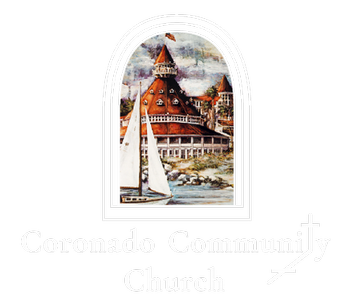Luke 18:18-27
A Sermon by Pastor Eric Smith
Published On: November 13, 2022
A Sermon by Pastor Eric Smith
Published On: November 13, 2022
Last week we talked about some broad, but personal aspects of stewardship. Today we’ll talk more about stewardship with focus on our financial stewardship.
Let’s start with an assessment of your financial situation…
Do you think you are a wealthy person? Some of us present today would not claim to be wealthy. There is reason for this. Money news and information surrounds us constantly. Our country is overall, the wealthiest in the world, and there are many people more wealthy than we are.
We live in a consumer culture – the prosperity of our country is directly tied to how much we spend and buy. America is so far into this that not only can we buy what we don’t have money for – there are business industries whose purpose is to keep track of how well we manage our debt. There are at least three companies that track and continually update how you manage debt. If your score is very good or excellent you get more favorable terms for accessing money and accumulating more debt. If not… sorry… you’re going to pay more… if you get a loan at all. Then you can turn to the businesses whose purpose is to help you increase your credit score.
Because we’re all part of this consuming-based culture it seems normal to us – but if there was someone unexposed to this… someone who hasn’t lived this reality … it would appear to them to be nonsensical.
In our money culture, we all have a sense of our relative wealth or lack of it, and we have an idea of where we fit in the big picture. But our big picture may not be as big as the real big picture. Here’s what I mean.
The top 1% in the United States
have income of $600,000 or more.
The top 1% in California have an income of at least $745,314 or more.
One more number…
The top 1% in the world
have income of $34,400…
I don’t know the specifics of your financial situation but I suspect your income puts you in the top 1% in the world.
If Jesus were discussing money with us today, he would talk about addiction. It was true in his day, it’s true in ours. People have money addictions.
We know how seductive money is. It’s worse than alcohol or drugs or the other addictive behaviors you can name. It’s worse because it is acceptable… it’s worse because it is valued. People with massive wealth are worshipped. They are newsworthy, they are celebrities (unless they have chosen to be very discreet). People want to know about them and, especially, what their secret is to accumulating wealth.
You know people who are addicted to money. It’s not an either you are addicted or you’re not kind of concept. You can be the financial equivalent of a social drinker. You just like to get a little glow going now and then – good tip on the stock market… a friend has an investment opportunity… that sort of thing. Our relationship to money is marked somewhere on an imaginary continuum that ranges from not very important to all consuming.
Do you know the name, John Muir? He is called the father of the National Parks of America.
He loved the Creation. He considered himself a rich man, but not because he had a lot of money. He was not a person addicted money.
On one occasion he compared himself to an American railroad tycoon, E.H. Harriman, who was very wealthy and well-known for it. Muir said that he was richer than Harriman because, he said, I have all the money I want and he hasn’t.”
Do you have all the money you want? Or are you still wanting to acquire more?
The spiritual principle of money is to let it flow through you – don’t hoard it – use it. You are a conduit for money. It’s a tool which, in the realm of spiritual value, once your family needs are met, can be used to make life better for others in all kinds of ways. Using money to make more money it is not a spiritual value… but if making money is what you do then make a lot! and then use it for good purposes.
John Wesley talked about this. He was not only a significant religious leader of the 18th century, he made a lot of money. He wrote books and people bought them. This is what he said about money…
I fear, wherever riches have increased, the essence of religion, the mind that was in Christ has decreased in the same proportion. Therefore I do not see how it is possible in the nature of things, for any revival of true religion to continue long. Because religion produces both industry and frugality; and these cannot but produce riches. But as riches increase, so will pride, anger, and love of the world in all its branches.
What way then can we take that our money may not sink us into hell? There is one way, and there is no other…
He said…
Gain all you can
Save all you can
Give all you can
If those who gain all they can, and save all they can, will likewise give all they can, then the more they gain, the more they will grow in grace, and the more treasure they will lay up in heaven.
Peter Marshall was the pastor of the New York Avenue Presbyterian Church in Washington DC before he became the Chaplain of the United States Senate. He was a brilliant man and a great preacher. This story is told of him…
There was a man who struggled to give generously even though he had a large income. The man said to Marshall: I have a problem. I used to tithe regularly some years ago but now … I am earning $500,000 a year, and there is just no way I can afford to give nearly $50,000.
Marshall reflected on the wealthy man’s dilemma but gave no advice. He simply said, I can see your problem. Let’s pray about it.
The man agreed. So Marshall bowed his head and prayed … Heavenly Father, I pray that you would reduce this man’s salary back to the place that he can afford to tithe.
Let’s talk about the CCC.
Your church will finish this year having spent about $155,000. We will have given about $7,000 to various missions.
Income has gone up and down but a trend line of income over the past 26 years would trend down. You can rest assured that our leaders are experts in cost cutting and getting the most bang for each buck.
Years ago Billy Graham was speaking at one of his events in the San Jose area, and told this story:
It seems there was a strong man who traveled with a circus. One of his most impressive stunts was to take an orange and squeeze every last drop of juice out of it. Then he would offer one thousand dollars to anyone who could manage to squeeze as much as one additional drop from it. He went from town to town making his offer, but no one was able to win the money.
Then one day he came to a small town in California and made his demonstration of juice squeezing prowess and the challenge. An older, wizened, man came forward and said he’d like to give it a try. He took the crushed orange and proceeded to squeeze six more drops of juice from it. The strong man was amazed. He could hardly believe his eyes. He asked how the older man was possibly able to do it.
The man shrugged and said, Oh, I’m the treasurer of my church and we do this all the time.
The CCC has been blessed by several people over the years who have left legacy gifts to the congregation. Most recent years, I don’t know exactly how many, we have taken interest income from those funds and used it to help fund the budget for the next year, while cutting back expenses as much as possible.
This is a new time for the CCC and it’s the right time in our 26 year history for us to reverse the cutting back trend… We need to take the Next Step.
Here is what I think we should do. (It’s not up to me, but you get my opinion…)
Start with missions. The CCC has historically given somewhere around 6 percent of church income to missions. We should make that 10 percent. A tithe. That’s biblical. Whatever we give to God through the CCC ten percent of it goes to missions. Part of that plan is that we also tithe the investment income from legacy gifts. In doing this everyone can understand what we give to missions, how we do it, and why. Simple, transparent, spiritually healthy. Good for the missions who receive the additional money, even better for the soul of our church. Touch more lives.
Next. We fund an optimistic, growing budget for 2023. We plan to grow in our missions, our ministry, our worship attendance, and our giving. That’s the next step.
Let me say this plainly. As you are able, consider increasing your pledge and your giving to the CCC for 2023. If you have not made a financial pledge in the past, now is the right time to start.
Next week you will get a letter restating all of this. Included in that mailing will be a chart showing how the CCC pledged in 2022, and a pledge card for 2023. Next Sunday… Thanksgiving Sunday… we bring our pledge cards to worship, present them at the time of the offering, and ask for God’s blessings.
I have mentioned to you before that during the years that I was the associate minister at the Claremont United Methodist Church, which was located next door to the seminary, we had 50 ordained ministers who were part of the congregation. One of them was K. Morgan Edwards – known as the dean of preachers and one of my seminary professors.
It was this time of year and the church was running behind on its budget. Our senior minister was Dave Lehmberg, and Dave was stressed about the finances. He was so stressed that on Sunday morning he had what we first thought was a heart attack. The paramedics came and took him to the hospital. It turned out that he had a panic attack.
He needed to step out for a few weeks and he did, so Dr. Edwards (the dean of preachers) said, Eric… I’ll preach and you run the church and we’ll raise that money. So that’s what we did.
Well the church was $30,000 dollars behind and those were 1984 dollars. A lot of money. I didn’t know how to address it, but Dr. Edwards did. He told me this…
Eric… never be apologetic or even hesitant in asking church folks for money. You’re not asking for yourself, and most importantly you are giving them an opportunity to grow spiritually.
We asked the members of the church to take the next step and make up that $30,000 shortfall. They did… and then gave another $10,000 beyond.
How long has it been since you grew in your financial stewardship?
Here at the CCC we have this opportunity for your spiritual growth. I will pray that you take it.




